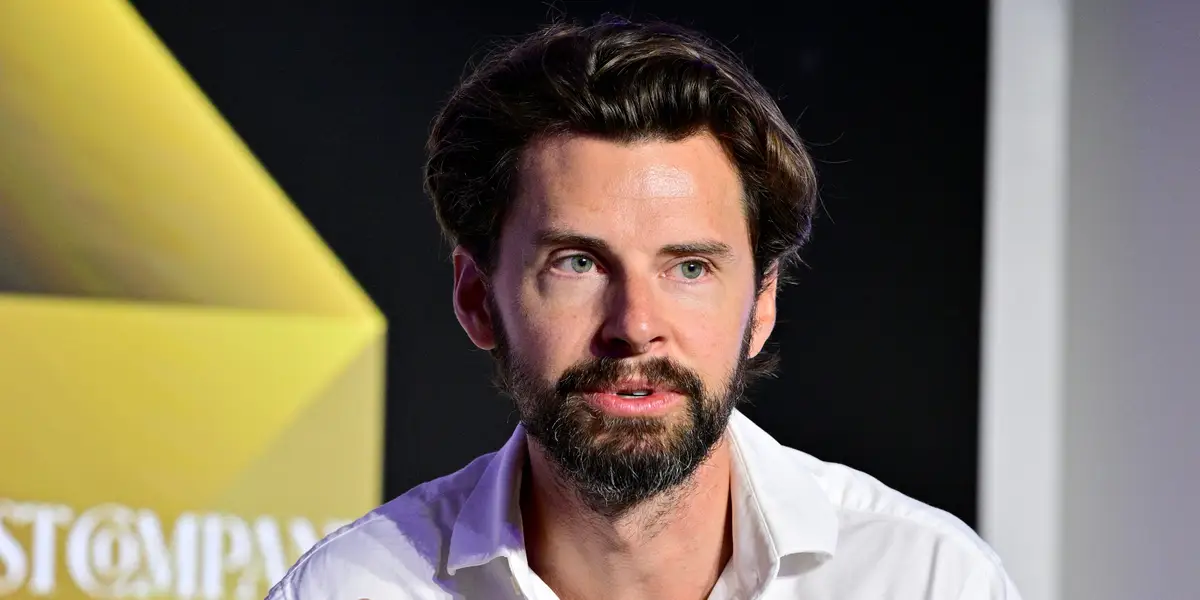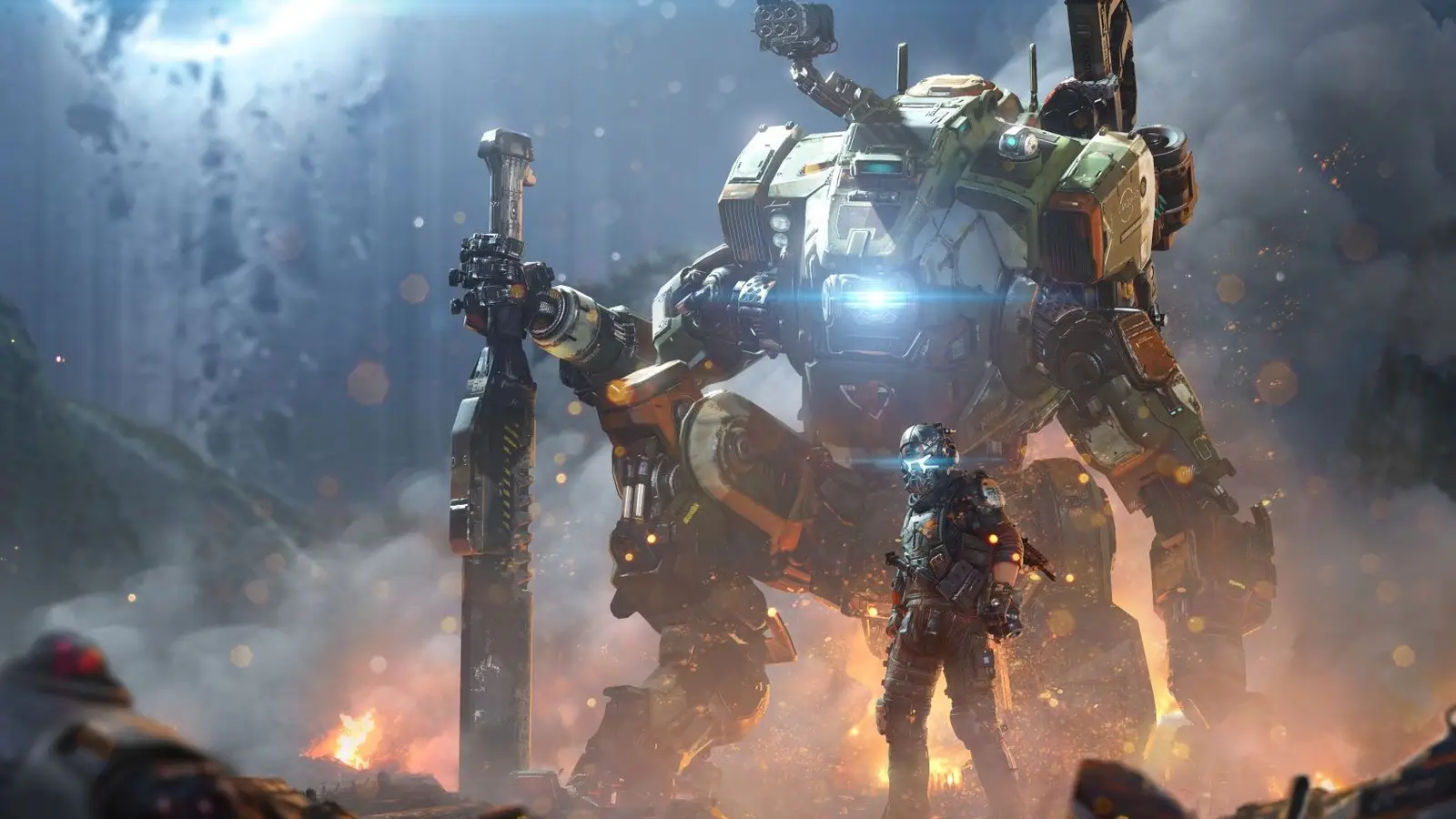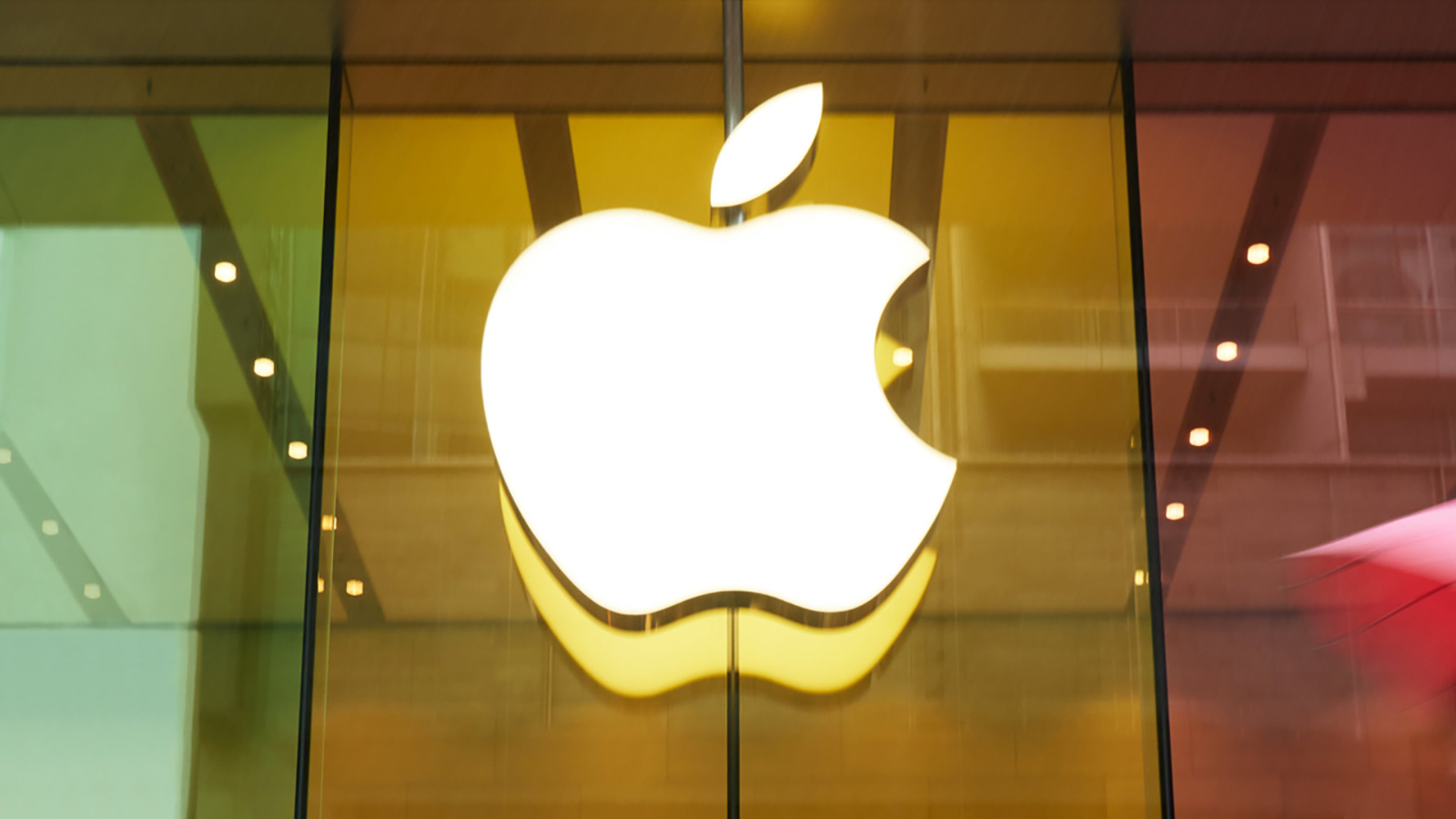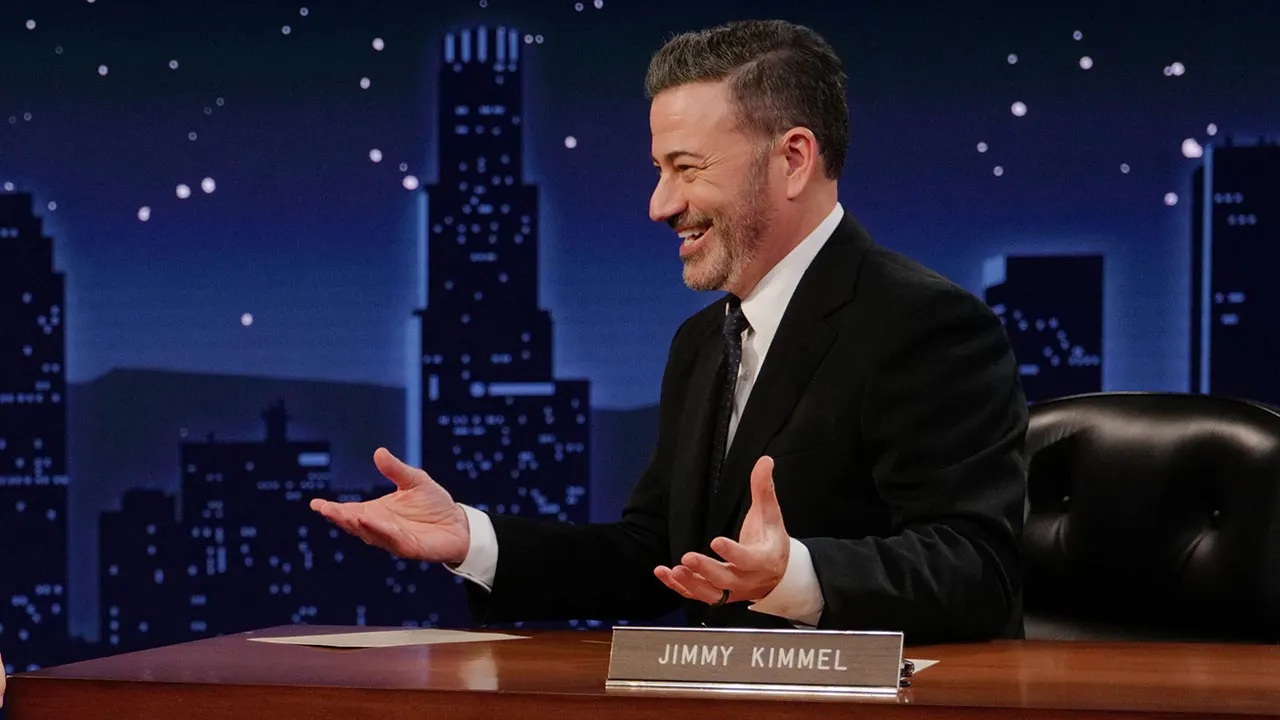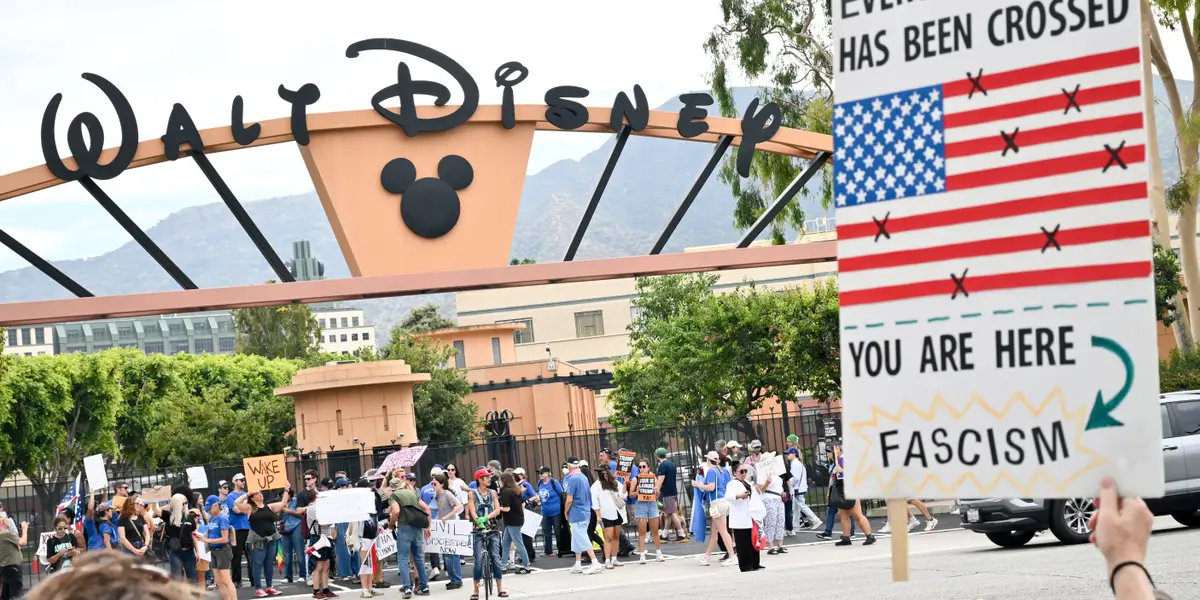
The protest, promoted by the Writers Guild of America West, started at noon on Thursday, the day after Kimmel was suspended, at the main gates of Disney Studios in Burbank, which is just north of Los Angeles and also home to Warner Bros. Studios.
Several hundred people showed up, including people who work in the entertainment industry, neighbors, and Burbank’s mayor.
For the couple of hours I was in attendance, there was a constant stream of honking and waving from people passing by in cars and expressing support as the protesters marched in front of Disney’s gates.
Several of the attendees I spoke to were part of the Writers Guild of America West, whose members include writers for Kimmel’s show. Plenty of people were wearing blue WGA shirts, while others were wearing shirts for SAG-AFTRA, a union for actors and other industry roles.
Several people I spoke to said they showed up to support Kimmel but also to send a message that they will not tolerate folks in their industry being silenced over protected speech.
“I’m out here today because as a fellow storyteller, I’m supporting not only Jimmy, but also any storyteller that has been silenced specifically during this administration and beyond that,” Aiko Little, a WGA member, told me.
Little, who is Oglala Lakota, said that as a Native American storyteller, they are especially concerned that more and more people will be silenced or lose work opportunities.
There were plenty of signs that directly supported Kimmel and demanded he be put back on air.
Several people said they were shocked that Kimmel, of all people, had his show suspended, calling him a relatively moderate figure.
Mike Van Gorder, a local protest organizer who lives in Burbank, called Kimmel’s comments about Kirk “mild criticism.” He told me he thought Kimmel’s indefinite suspension was so chilling because it showed that even the biggest, most powerful figures aren’t safe, adding, “It’s not going to stop with Kimmel.”
When I asked Kevin Hench, a comedy writer and WGA member, why he showed up to protest, his answer was simple: “Free speech.”
“That’s how I make my living,” he said. “And I’m friends with Jimmy Kimmel, and I like him quite a bit personally, but I also think Tucker Carlson should have the right to free speech.”
Hench told me his concerns around free speech go beyond the current administration and that there’s been a chilling effect from both sides of the political spectrum on what you can and can’t joke about.
“Obviously, this is a dire advance in the march against free speech,” he said. “I don’t think anybody likes writing jokes looking over their left shoulder or their right shoulder.”
Speaking to the crowd, organizer Van Gorder said, “Is comedy better when you have to ask permission?”
As could probably be expected at a protest full of writers, plenty of the signs had clever references to Disney and its shows and movies.
Several people made parallels between the situation and “Andor,” Disney’s show in the “Star Wars” universe that depicts the oppression of the Galactic Empire.
One sign referencing Disney’s CEO said, “Did Bob Iger even watch Andor?”
“First Colbert and now Kimmel, and now where?” Ryan Mekenian, a writer and director who works as an associate digital producer for “Family Feud,” told me.
“These companies are becoming more and more conglomerated together and power is centralized, and so I feel like that means there’s less systems of checks and balances,” he said. “It only takes just a couple of people to kowtow to the FCC or to the administration.”
